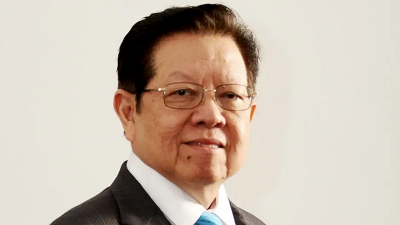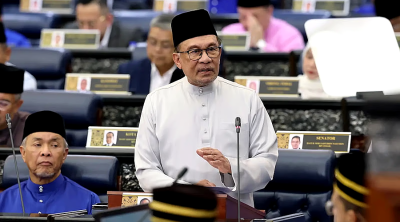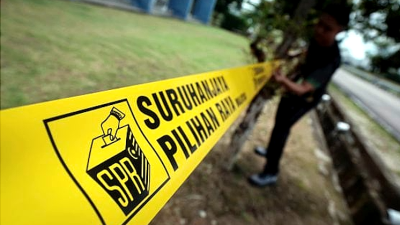The government and the press will need to play their respective roles conscientiously in striking a balance between the public’s right to information and press freedom.
Entering the month of May, two international rankings showed up as the unity government is approaching its six-month mark: World Press Freedom Index and Crony-capitalism Index 2023.
These two indices should serve as important benchmarks for the unity government’s effort in instituting reforms and good governance.
May 3 will be the World Press Freedom Day, and every year Reporters Without Borders (Reporters sans frontières, RSF) will publish their World Press Freedom Index.
Malaysia has chalked phenomenal improvement in this year’s ranking, jumping from 113th last year to 73rd this year to its best standing ever.
According to the latest Crony-capitalism Index 2023 by The Economist, Malaysia was nevertheless ranked third, just behind Russia and Czech.
First, the press freedom index. Our last best standing was in 2020, when we were ranked 101st among 180 countries and territories. A major factor that could have contributed to the improvement in 2019 was the first ever change of federal government in the country’s history.
This year, the remarkable improvement the country has made in press freedom could be, once again, related to the change of administration and the emergence of a new, strong political alliance.
RSP said in its report that this has helped improve the country’s standing as the political and economic turmoil over the past three years has spawned a new sense of stability.
In other words, the euphoria arising from a change in the country’s political climate has boosted our score and ranking.
The indices for 2022 and 2023 have been determined based on five indicators, namely political context, legal framework, economic context, sociocultural context and safety. Malaysia scored poorly in legal framework, but we did pretty well in safety. This means there is still room for improvement in Malaysia’s law in order to safeguard press freedom.
The vast improvement we have made in press freedom index has significantly lifted the unity government’s morale.
While tweeting about the news, Prime Minister Datuk Seri Anwar Ibrahim said he hoped the Malaysian press would continue to defend the principle of democracy. He also pledged that the unity government would keep its promise to defend the principle of Malaysia Madani through unbiased and factual press reporting.

Nevertheless, certain events that have happened have underlined the reality that there is still ample room for improvement in the country’s press freedom.
The attitude of some ministers towards the media needs to change.
Communications and digital minister Ahmad Fahmi Mohamed Fadzil has on two separate occasions accused the media of attempting to tarnish the government’s image in their reporting, including the survey on the first 100 days of Anwar’s unity government jointly run by five local media companies (including Sin Chew Daily) and O2 Research; and on another occasion slamming a mainstream Malay newspaper for reporting that Bank Negara would further hike the OPR, quoting an economic expert.
The PM had earlier said the cabinet would guarantee the freedom and openness of the Fourth Estate while preserving the media’s checks and balances functionality.
Unfortunately, Fahmi’s remarks were contradictory to the promises made by the PM. Fahmi should have respected the freedom of expression and should have been more mature in the handling of media-related issues.
While the minister takes pride in the country’s tremendous improvement in press freedom standing, he should strive to expand the room for press reporting so that they can perform even better in the year to come, in a direct way significantly lifting the country’s international reputation and image.
The Center for Independent Journalism Malaysia (CIJ) opines that the existing Printing Presses and Publications Act, Section 233 of the Communications and Multimedia Act, the Official Secrets Act and Sedition Act will have to be reviewed, revised or abolished, in a bid to create a more favorable environment for the press to operate.
CIJ stressed the utter importance of enacting a new law on the people’s right to information, to ensure a progressive and conducive information ecosystem.
In the meantime, all media must be accorded equitable right in conducting interviews while all discriminatory practices that may encroach on the rights of media practitioners must be stopped.
Apparently, there is still ample room for improvement in our existing media environment. But unfortunately, home minister Saifuddin Nasution Ismail said the Printing Presses and Publications Act and Sedition Act are still relevant today in preserving public security and order and there is no need to hastily repeal them, when answering a question in Dewan Negara last month. However he said the government would continue to study this matter from time to time.
The government needs to step up communication with the press and consult their views.
The Malaysian Media Council (MMM), which has been in talks since 2018, is once again put on the table. Perhaps this is a prelude to the lifting of more media restrictions.
Owing to the open nature of the online media platform, the cyberspace is inundated with fake news and misinformation, and this has adversely impacted press freedom.
RSP pointed out in its report that politicians in some countries have been customarily and systematically participated in the large-scale spreading of misinformation, blurring the line between real and false, as well as facts and lies, thus menacing the public’s right to information.
The multitude of fake news on social media has eroded the public’s faith in the media.
Simply put, both the government and media organizations will have to play their respective roles conscientiously in striking a balance between the public’s right to information and press freedom.
In addition, the Crony-capitalism Index underscores the fact that the Malaysian government still has a lot to do in instituting political reform.
The situation of government-business collusion has yet to improve, even though Anwar vowed to stamp out corruption soon after taking office.
While the MACC has made some positive moves, the intensity and transparency of investigation still leave much to be desired.
Anwar has promised to stop political appointments, but what we have seen is that politicians defeated in the election have been offered chairmanship in GLCs.
Where this is concerned, perhaps the government needs to exercise a higher degree of prudence when making appointments, and draw up unambiguous guidelines and criteria towards greater transparency.
Although the PM has said reform should not be rushed through, the unity government can still implement more institutional and legal reforms to deliver the country out of the chronic malady of corruption so that the rakyat can see the difference between the incumbent unity government and its predecessors.
ADVERTISEMENT
ADVERTISEMENT








































